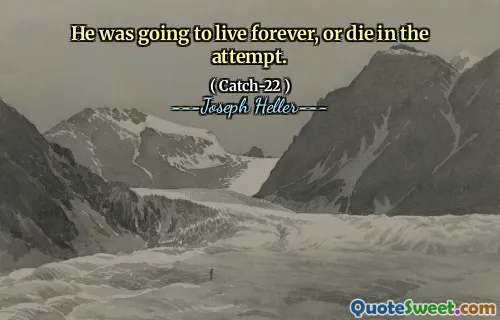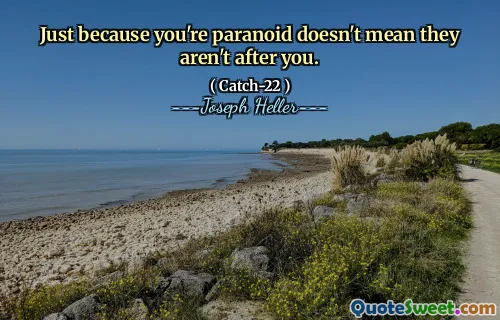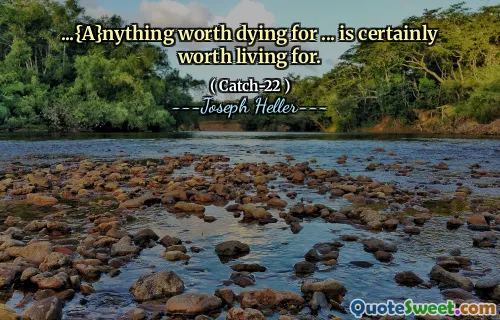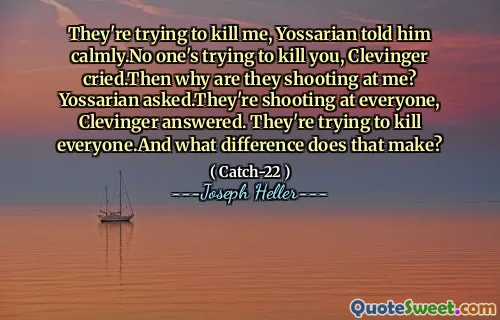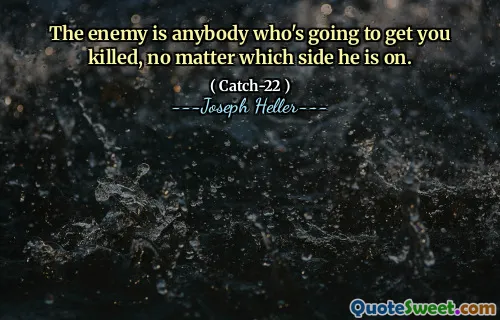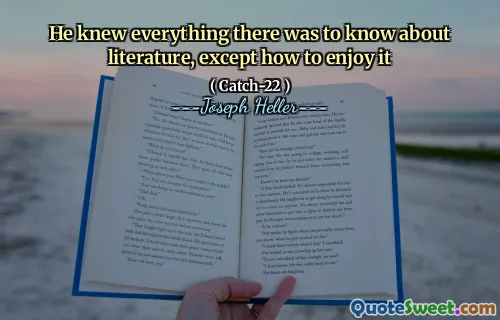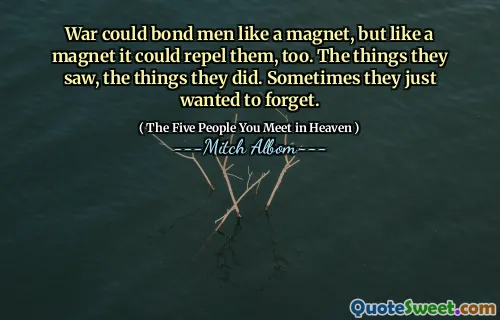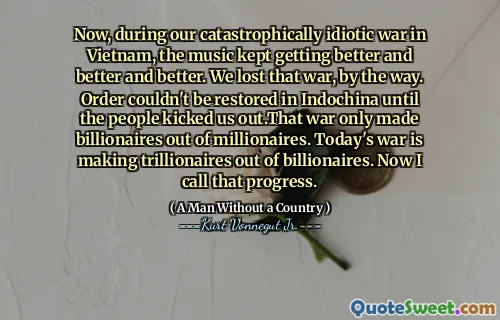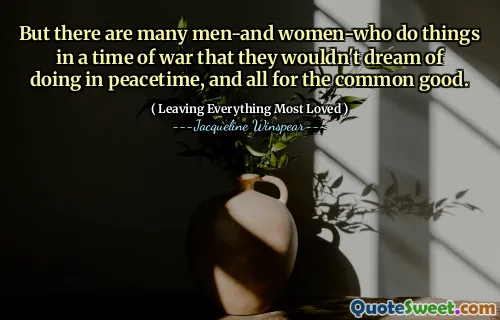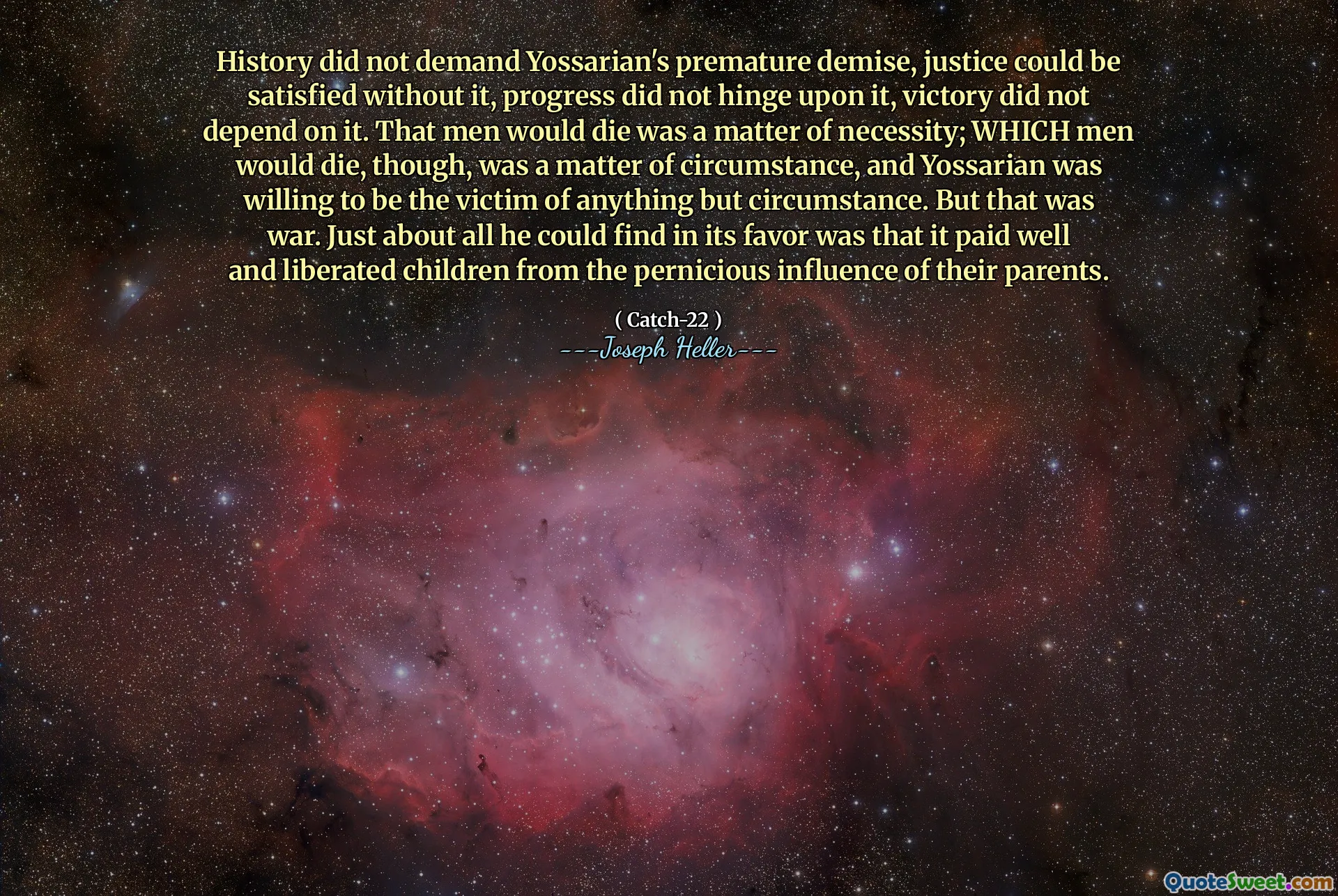
History did not demand Yossarian's premature demise, justice could be satisfied without it, progress did not hinge upon it, victory did not depend on it. That men would die was a matter of necessity; WHICH men would die, though, was a matter of circumstance, and Yossarian was willing to be the victim of anything but circumstance. But that was war. Just about all he could find in its favor was that it paid well and liberated children from the pernicious influence of their parents.
In "Catch-22," the character Yossarian grapples with the arbitrary nature of death in warfare. He realizes that while loss of life is inevitable in conflict, the decision of who will die often comes down to random chance. Yossarian does not believe that his own death would serve any crucial purpose for justice or progress, making him determined to escape such fate. Through this lens, he reflects on the absurdities of war, specifically rejecting the idea of being a casualty determined solely by circumstance.
War, according to Yossarian's perspective, offers little justification for its brutality. The only perceived benefits he finds are financial gain and the possibility of freeing children from their parents' negative influences. This highlights the senselessness of the sacrifices made and the toll it takes on the individuals involved, prompting a deeper questioning of the values associated with such sacrifices. Ultimately, Yossarian's struggle illustrates the chaos and folly inherent in the military conflict and the arbitrary nature of life and death decisions within it.
